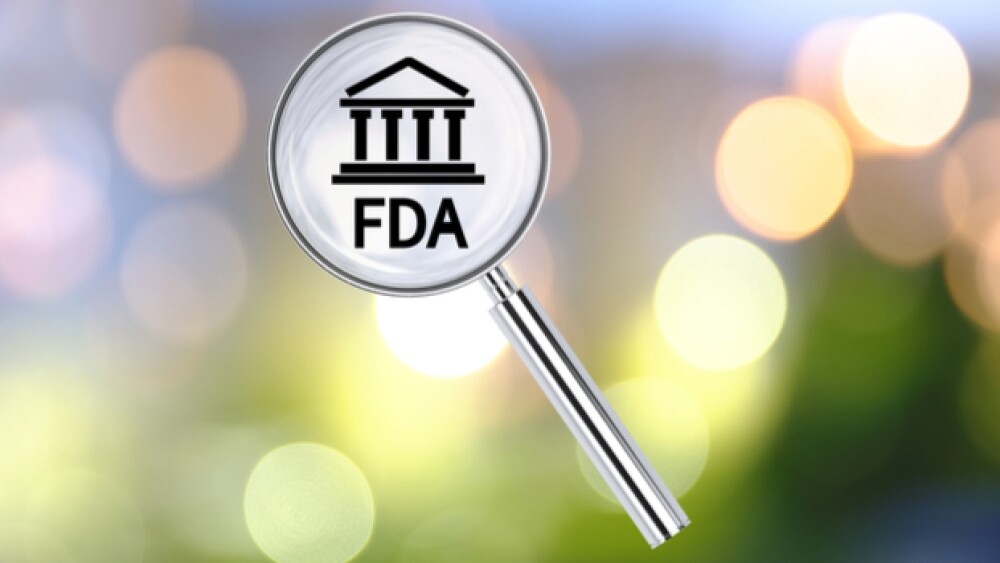The U.S. Food and Drug Administration has been busy approving new treatments for various diseases. Two days into the new week and the regulatory agency has green lit two therapeutics, while other companies are planning to file for potential approval.
The U.S. Food and Drug Administration (FDA) has been busy approving new treatments for various diseases. Two days into the new week and the regulatory agency has greenlit two therapeutics, while other companies are planning to file for potential approval.
Pfizer – On Monday, the FDA approved Pfizer’s Trazimera, a biosimilar to Roche’s breast cancer drug Herceptin. Trazimera, a monoclonal antibody biosimilar, was approved for the treatment of human epidermal growth factor receptor-2 (HER2) overexpressing breast cancer and HER2 overexpressing metastatic gastric or gastroesophageal junction adenocarcinoma. The FDA granted approval to Trazimera based on results from the REFLECTIONS B327-02 clinical comparative study that showed clinical equivalence, finding a high degree of similarity and no clinically meaningful differences between Trazimera and Herceptin in patients with first-line HER2 overexpressing metastatic breast cancer.
Mark Pegram, associate director for clinical research at the Stanford Comprehensive Cancer Institute, and director of the Breast Oncology Program at the Stanford Women’s Cancer Center, said 15-30 percent of breast cancers and 10-30 percent of gastric cancers are HER2-positive. The approval of Trazimera will provide oncologists additional treatment options for patients, Pegram said.
Regeneron/Sanofi – Dupixent, an inhibitor of interleukin-4 (IL-4) and interleukin-13 (IL-13), picked up another regulatory indication. On Monday, the FDA approved Sanofi and Regeneron’s therapeutic for adolescent patients 12 to 17 years of age with moderate-to-severe atopic dermatitis whose disease is not adequately controlled with topical prescription therapies or when those therapies are not advisable. The FDA evaluated the Dupixent application under Priority Review. Dupixent won approval for this indication based on clinical trial data that showed average improvement in the Eczema Area and Severity Index (EASI) from baseline of approximately 66 percent. That was compared to 24 percent for placebo. Trial data also showed that more than 10 times as many patients had clear or almost clear skin with Dupixent compared to placebo.
“For the first time, adolescents with uncontrolled moderate-to-severe atopic dermatitis have an approved biologic treatment option to help control persistent, often debilitating symptoms such as chronic itch and widespread rash,” George D. Yancopoulos, president and chief scientific officer of Regeneron said in a statement. “Given that Dupixent targets a key pathway in type 2 inflammation, we are also investigating it in a broad development program in patients with other type 2 inflammatory diseases including eosinophilic esophagitis, chronic rhinosinusitis with nasal polyps, where we recently announced positive Phase III results and Priority Review of a U.S. regulatory submission, and food and environmental allergies.”
Eli Lilly – Indianapolis-based Eli Lilly is planning to seek regulatory approval of Cyramza (ramucirumab) based off positive Phase III results. This morning, Eli Lilly said Cyramza met its primary endpoint of progression-free survival in patients with metastatic non-small cell lung cancer whose tumors have activating EGFR mutations. The drug demonstrated a statistically significant improvement in the time patients lived without their cancer growing or spreading after starting treatment, Eli Lilly said.
Maura Dickler, vice president of late phase development at Lilly Oncology, said the Phase III show Cyramza plus erlotinib significantly delayed disease progression in this patient population. There is no cure for people with metastatic lung cancer. The disease is associated with low survival rates and disease progression following acquired resistance remains a challenge.
Based on the results of the Phase III RELAY trial, Lilly intends to initiate global regulatory submissions in mid-2019. The RELAY trial is the second positive Phase 3 study of Cyramza in metastatic NSCLC. In the REVEL study, Cyramza plus docetaxel hit the primary endpoint of overall survival in people with metastatic NSCLC whose cancer had progressed on or after prior platinum-based chemotherapy for locally advanced or metastatic disease.
Akebia Therapeutics – Cambridge, Mass.-based Akebia Therapeutics announced positive top-line results from two Phase III studies evaluating vadadustat, an investigational oral hypoxia-inducible factor prolyl hydroxylase inhibitor (HIF-PHI), in Japanese subjects with anemia due to chronic kidney disease (CKD). Each study, one in non-dialysis dependent subjects and one in hemodialysis-dependent subjects, met its primary endpoint, Akebia said. The studies were conducted by Akebia’s collaboration partner in Japan, Mitsubishi Tanabe Pharma Corporation. Based on the results of the study, MTPC expects to submit a Japanese New Drug Application in 2019.
In Japan, there are an estimated 13 million people who are afflicted with advanced stages of CKD. Anemia is common in patients with CKD and its prevalence increases as CKD progresses. John P. Butler, president and CEO of Akebia, said the data from the studies provide further confirmation of vadadustat’s potential to meaningfully transform the treatment paradigm for patients with anemia due to CKD.





